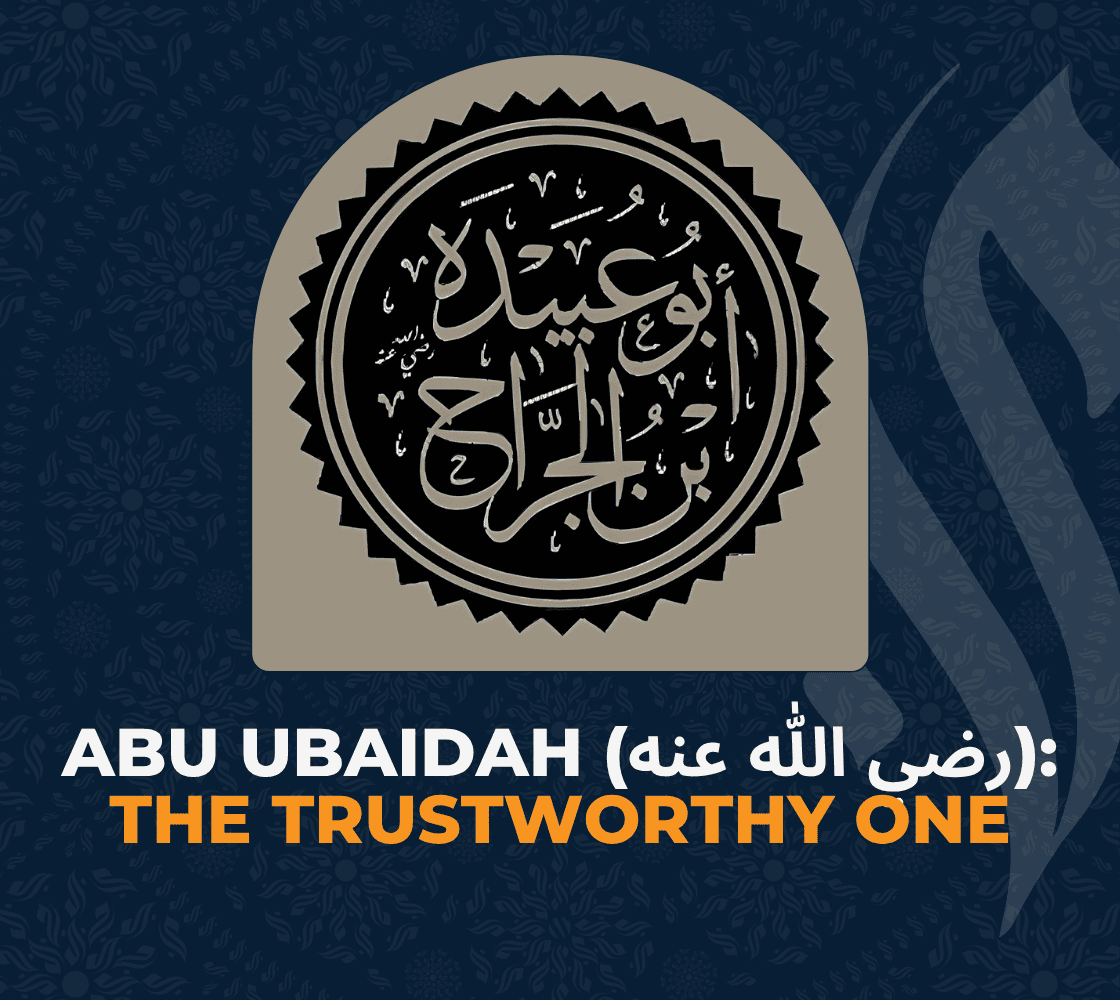

Abu Ubaidah ibn al-Jarrah (رضي الله عنه) stands out in Islamic history not only for his military leadership but also for his integrity, discipline, and success as a merchant. His life offers timeless lessons for Muslim entrepreneurs, founders, and leaders on balancing trust, wealth, and responsibility.
Who He Was
Abu Ubaidah (رضي الله عنه) was one of the earliest converts to Islam and a close companion of Prophet Muhammad (صلى الله عليه وسلم). He participated in every major battle of the early Muslim community, including Badr, Uhud, and the conquest of Syria, consistently demonstrating courage and strategic thinking.
Even in high-pressure situations, he prioritized the welfare of his people. For instance, during the Battle of Yarmouk, he led the Muslim army with calm authority, ensuring that orders were clear and discipline was maintained without seeking personal recognition. His humility and effectiveness earned him immense respect among the Sahaba (رضي الله عنهم) and the Muslim community.
Why He Was Called “The Trustworthy One”
Abu Ubaidah (رضي الله عنه) earned this title from the Prophet Muhammad (صلى الله عليه وسلم) himself. The Prophet said:
“Every nation has a trustworthy man, and the trustworthy man of this nation is Abu Ubaidah ibn al-Jarrah.”
(Sahih al-Bukhari, 3744)
His Wealth and Merchant Life
Before and alongside his military and public service, Abu Ubaidah (رضي الله عنه) was involved in trade. Unlike many who prioritize profit above all, he maintained integrity and fairness in all his deals.
For example, he would only engage in partnerships where all parties understood their roles and profits were distributed fairly. Any surplus from trade was often used to support the poor or fund essential community projects. By treating wealth as an amanah rather than a personal gain, he demonstrated a principle every Muslim entrepreneur can adopt: profit should never come at the expense of honesty or ethics.
Concrete lessons and actions for Muslim founders, drawn from his life
Concrete lessons and actions for Muslim founders, drawn from his life
Example: Abu Ubaidah collected the remaining dates, rationed them, and explained the plan to the men so everyone survived. Use a single source of truth for inventory and allocate via transparent rules. Sunnah
Build simple logistics and contingency plans before scaling
Example: Abu Ubaidah’s coordination during the Syrian campaigns shows the importance of planning supply lines and fallback positions. For business, map critical suppliers and set backups. archive.org
Keep written agreements and clear records for money and partners
Example: chroniclers describe his careful public administration and fair handling of funds after conquests. In startups, maintain basic financial controls, receipts, and partner contracts. ikee.lib.auth.gr
Use reputation as a strategic asset and protect it with behavior
Example: the Prophet’s declaration of Abu Ubaidah as the Amin of the nation is rooted in repeated acts of honesty and fairness. Protect your brand by being consistent. Sunnah
Treat resources as amanah and allocate part of earnings for social benefit
Example: reports on his life show he prioritized public welfare and used resources to support the needy. Consider allocating a fixed percentage of profits to community support or zakat accounting. alim.org
Subscribe to Muslim Founder's Newsletter
The only newsletter you need to start & grow your Muslim business, Insha'Allah.
100% Free. No Spam Guaranteed.
Conclusion
Abu Ubaidah ibn al-Jarrah (رضي الله عنه) embodies the ideal combination of trust, competence, and ethical entrepreneurship. Muslim founders can learn from his life by prioritizing honesty, integrity, and purposeful wealth creation. By integrating these principles, businesses can grow in a way that brings both worldly success and spiritual reward.
Sources and further reading
Al-Tabari, History: https://archive.org/stream/20191102_20191102_0635/Tabari_Volume_12_djvu.txt
Yaqeen Institute Video:
https://yaqeeninstitute.org/watch/series/abu-ubaydah-ibn-al-jarrah-ra-the-trustworthy-one
Subscribe to Muslim Founder's Newsletter
The only newsletter you need to start & grow your Muslim business, Insha'Allah.
100% Free. No Spam Guaranteed.


